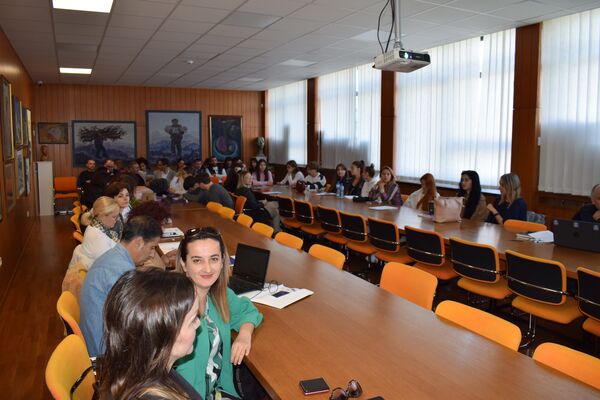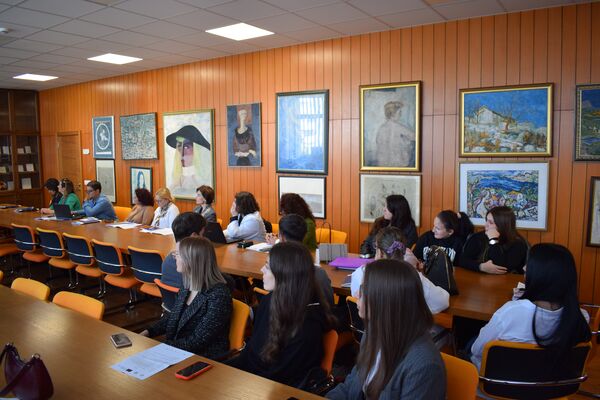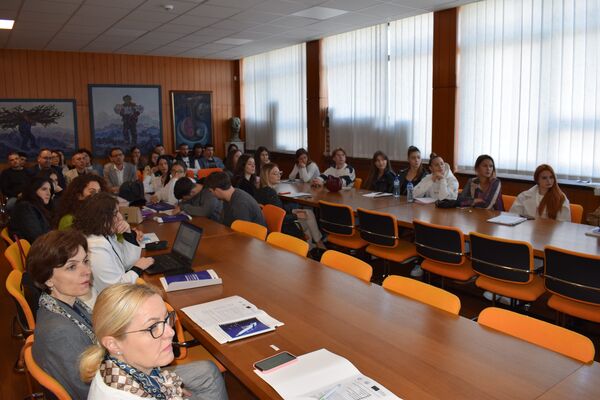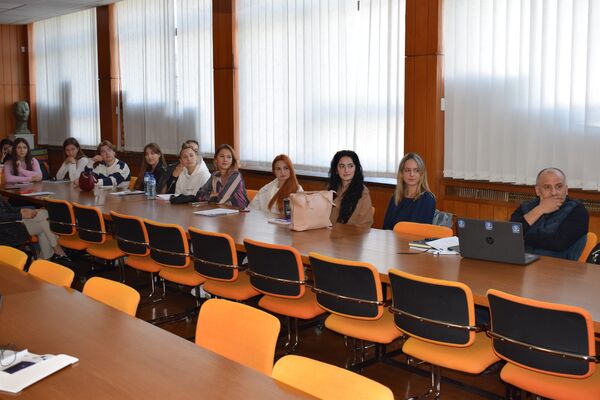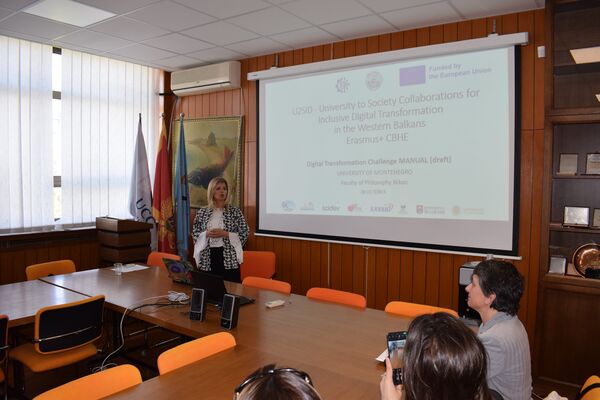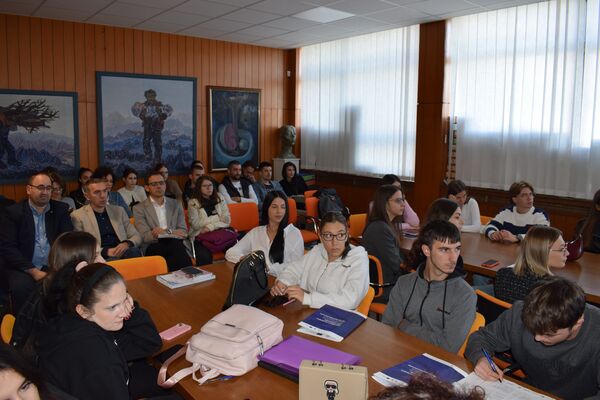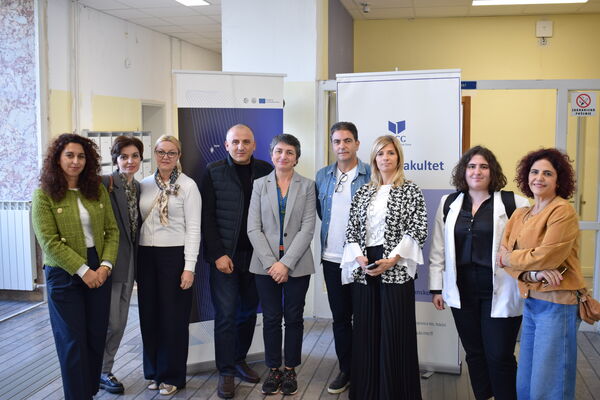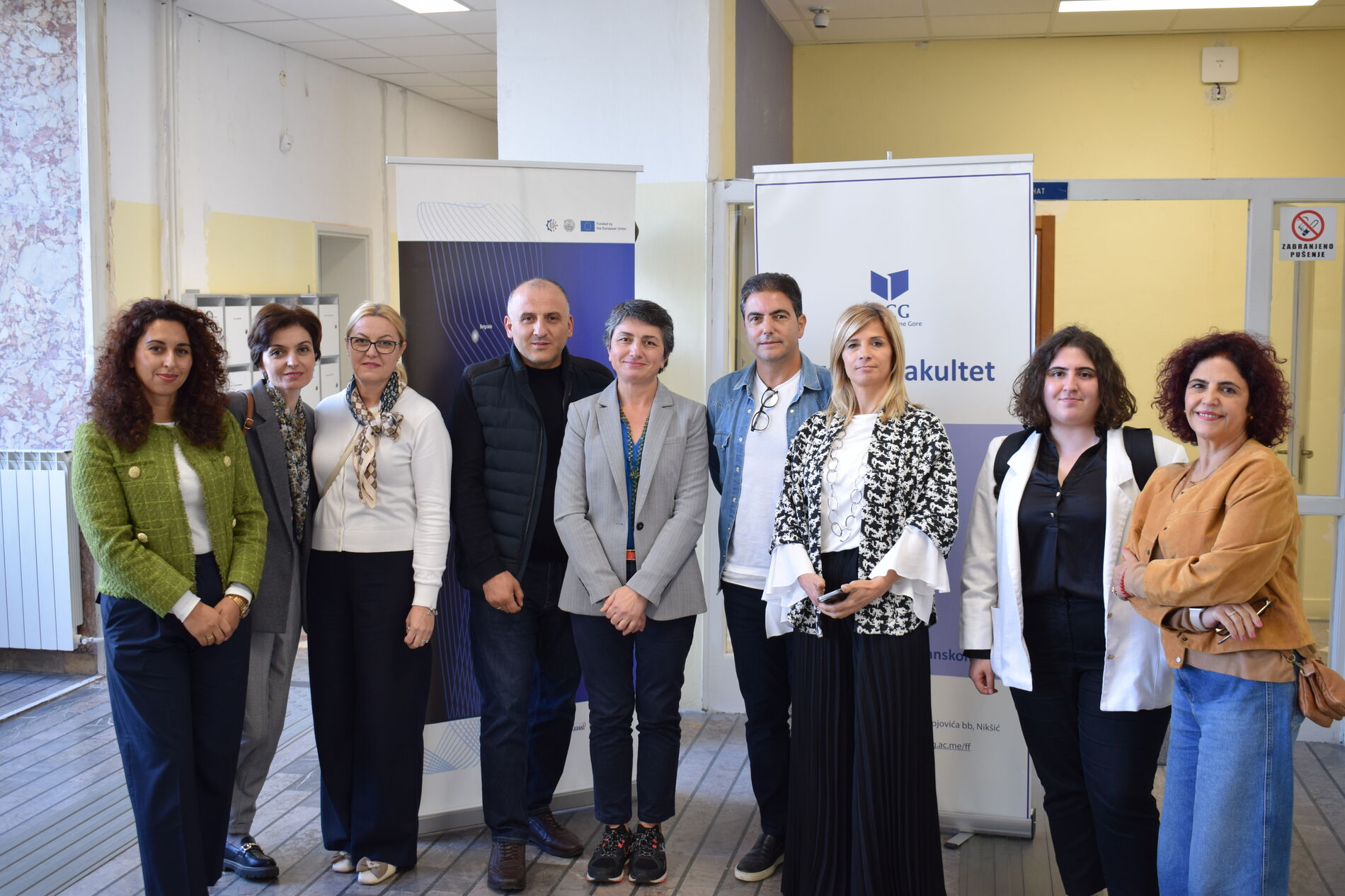
Advancing Digital Transformation in Higher Education
Montenegro, 28 October 2024
On October 28, 2024, the University of Montenegro, Faculty of Philosophy hosted a pivotal U2SID workshop focused on refining and implementing the "Digital Transformation Challenge" (DTC). This significant gathering brought together all partners of the project in person or online, all committed to fostering digital transformation and innovation in higher education.
The central topic of the meeting was the development of the DTC manual, which was collaboratively designed by the University of Montenegro and the University of Shkodra. Designed to guide the practical implementation of the challenge, the manual outlines a strategic framework for project-based learning. It encourages interdisciplinary teamwork between students and faculty, emphasizing real-world problem-solving using digital technologies. Once finalized, this manual will be utilized by all partner universities, ensuring a consistent and impactful approach across institutions.
A major focus of the workshop was aligning the Digital Transformation Challenge with university strategies to foster greater institutional engagement and support. Participants explored the benefits of integrating the DTC into academic programs and the broader objectives of the universities. This alignment is expected to strengthen the role of higher education institutions as drivers of digital innovation, with a positive impact on labor markets, regional development, and societal progress.
The meeting also addressed the strategic involvement of students, mentors, and stakeholders. An important discussion centered on the value of mentorship from EU partner universities to support the teams from Albania and Montenegro. The idea of facilitating online mentorship sessions was warmly received, with consensus on the potential benefits of cross-border collaboration and knowledge exchange. Furthermore, participants highlighted the importance of recognizing students' contributions through academic credits or potential payment structures, given the professional-level work these projects demand.
The structure and goals of the DTC were presented, outlining the various stages from participant recruitment and team formation to project development and public presentation. The workshop emphasized a collaborative approach that engages external stakeholders from diverse sectors, including business, banking, civil society, and public administration. This engagement ensures that the challenges tackled are both meaningful and reflective of societal needs, providing students with a valuable, hands-on learning experience.
Additionally, the meeting covered the strategic establishment of Centers of Excellence for Digital Transformation at participating universities. These centers will serve as hubs for ongoing innovation and collaboration, supporting the project's long-term impact and sustainability. The importance of securing formal institutional support and resources was underscored, emphasizing the need to embed these initiatives into core university operations.
A presentation by NASRI offered insights into a successful model that could inspire future activities within the consortium. Discussions included the potential adaptation of NASRI’s strategies, such as establishing digital databases and creating regulatory frameworks to support digital transformation efforts. The exchange of ideas and experiences underscored the value of cross-institutional learning and the importance of continuous improvement.
As the workshop concluded, next steps were outlined to ensure the timely and effective rollout of the Digital Transformation Challenge. This workshop marks a significant milestone for the U2SID project as it continues to drive inclusive digital transformation in higher education across the Western Balkans. The collective efforts of all partners are crucial in building a future where digital skills and innovation are at the forefront of academic and societal progress. Stay connected for more updates as we advance on this exciting journey!




